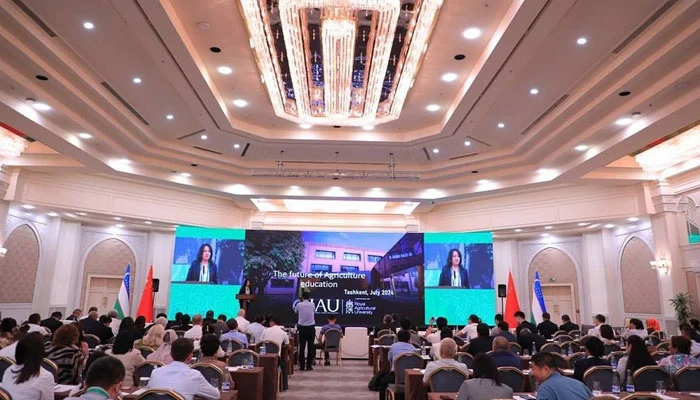In a significant step towards advancing agricultural technology through international collaboration, four Pakistani universities—Quaid-i-Azam University, Pir Mehr Ali Shah Arid Agriculture University, Sindh Agriculture University, and Ayub Agricultural Research Institute—have joined the Silk Road Agricultural Education and Research Innovation Alliance. This development occurred at the 9th Silk Road Agricultural Education and Research Cooperation Forum, held from July 9-12 in Tashkent, Uzbekistan.
This alliance aims to enhance cooperation between leading institutions in China and Pakistan, focusing on the exchange and joint development of new food crops, vegetable varieties, and medicinal crops. Abdul Ghaffar Shar, a Post-doctoral Research Fellow at Northwest A&F University in China, a founding institution of the alliance, shared insights with China Economic Net.
Last year, the alliance provided Pakistani universities with wheat and vegetable varieties such as cabbage, carrot, and tomatoes for research at their demonstration parks. Additionally, new linseed varieties will be exchanged later this month during a mutual visit. Researchers have selected 19 stress-resistant wheat strains and identified a new wheat variety suitable for broader cultivation in Pakistan, projected to improve wheat production and salt stress tolerance by 27%, reduce costs by 13%, and increase farmers’ income by approximately 25%.
Innovations such as nanobiochar, new nutrient solutions, and bio-organic fertilizers have also been introduced, enhancing crop quality and output. Model farms for sesame contract farming have been established across Pakistan, significantly boosting the country’s export potential.
Initiated in 2016, the agricultural alliance now includes 14 new members from China, Nepal, Pakistan, and Uzbekistan. With over 60 institutions from 13 countries participating, the alliance’s membership has grown to 120 institutions from 19 countries, facilitating global partnerships for Pakistani universities and research institutions.
